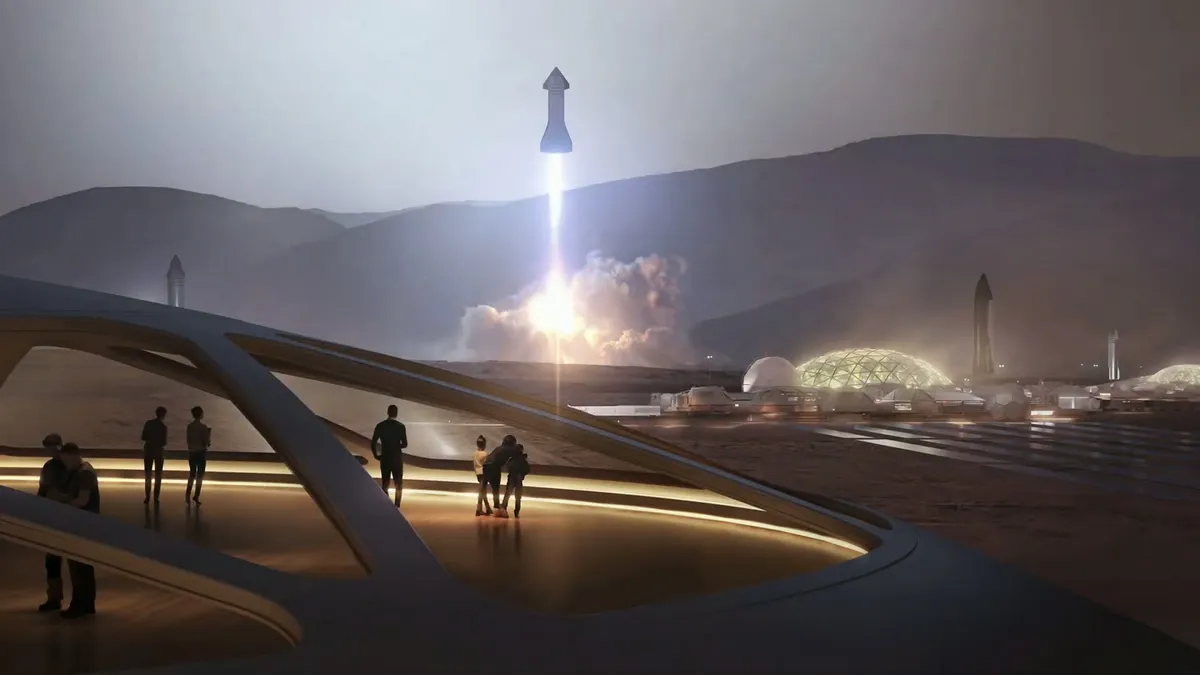During his inauguration speech, former President Donald Trump introduced the idea of pursuing “manifest destiny” in space, emphasizing the nation’s ambition to send astronauts to Mars. “And we will pursue our manifest destiny into the stars, launching American astronauts to plant the Stars and Stripes on the planet Mars,” he stated on January 20.
By invoking this historically charged concept, Trump linked the nation’s space ambitions to a doctrine originally used to justify 19th-century territorial expansion. This statement raises questions about what such a vision could mean for the future of U.S. space exploration.
The Historical Context of Manifest Destiny
Manifest destiny was a 19th-century belief that the United States was divinely destined to expand across North America. Trump’s reference to this idea echoes his expansionist rhetoric on issues such as reclaiming the Panama Canal and expressing interest in acquiring Greenland. The phrase, however, carries multiple interpretations.
Bleddyn Bowen, an associate professor of astropolitics at Durham University, explains that manifest destiny evokes a belief in a preordained right to explore, colonize, and exploit territories, as seen during America’s westward expansion. However, this period was also marked by hardship and displacement for indigenous peoples.
In the context of space, Bowen notes, many Americans see exploration and potential colonization as an inevitable duty or right, but this notion is not without controversy.
Implications for NASA and SpaceX

Trump’s mention of Mars specifically suggests a potential shift in U.S. space policy toward prioritizing Mars missions, possibly at the expense of NASA’s current moon-focused Artemis program.
SpaceX, led by Elon Musk, has long championed the goal of establishing a human presence on Mars. Given Musk’s ties to the Trump administration, this vision could see SpaceX play a central role in any Mars-focused initiatives. If such a policy shift materializes in future budgets and policy directives, it could redefine NASA’s role and increase the reliance on private-sector partnerships.
International Perspectives and Concerns
While many nations support the right to explore and utilize space resources, the term “manifest destiny” carries imperialist connotations that may not resonate well globally. Bowen points out that references to historical expansionism can evoke memories of forced displacement and exploitation, complicating international cooperation efforts.
Language and diplomatic messaging are critical for building alliances in space exploration. Programs like Artemis, which aim to involve multiple international partners, must carefully navigate the rhetoric to avoid alienating allies.
Legal and Diplomatic Considerations
The 1967 Outer Space Treaty, which the U.S. has signed, states that outer space is free for exploration by all nations and cannot be claimed by sovereignty. While there is no indication that the Trump administration intended to withdraw from the treaty, doing so would have profound implications for international relations and space law.
In essence, invoking “manifest destiny” in space could serve as an inspirational call for exploration and progress, with Mars as a primary target. However, it also introduces potential diplomatic and ethical challenges. Any major shifts in U.S. space policy, such as abandoning the moon in favor of Mars, would require congressional approval and broad public support.
As the U.S. continues to shape its space policy, balancing ambitious goals with international cooperation and legal obligations will be key to ensuring a sustainable and inclusive future in space exploration.

